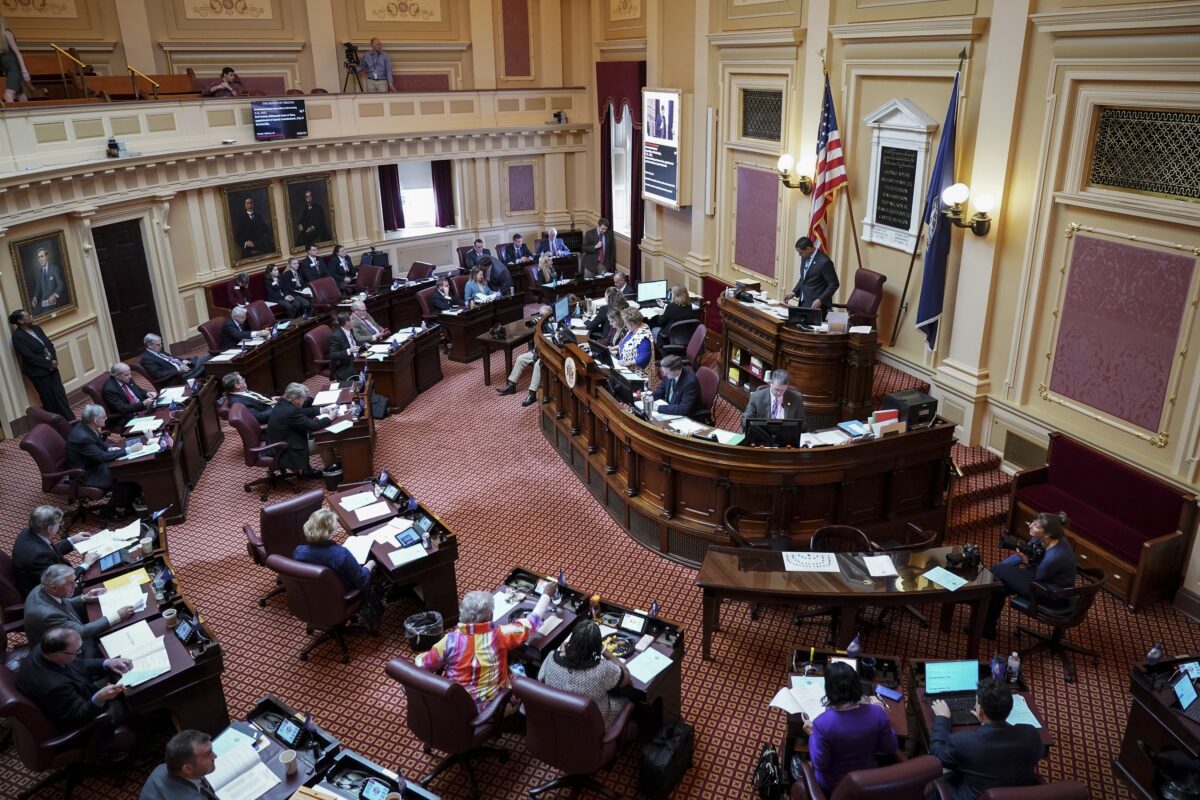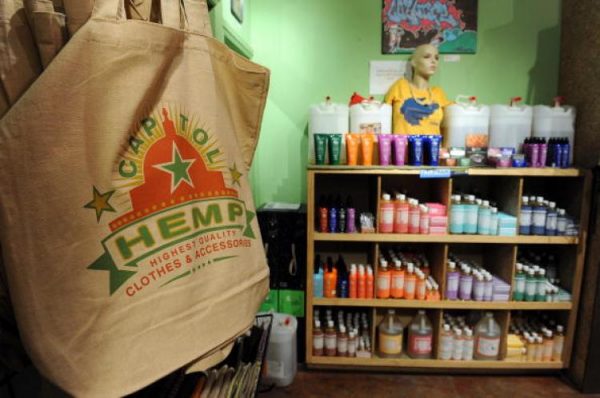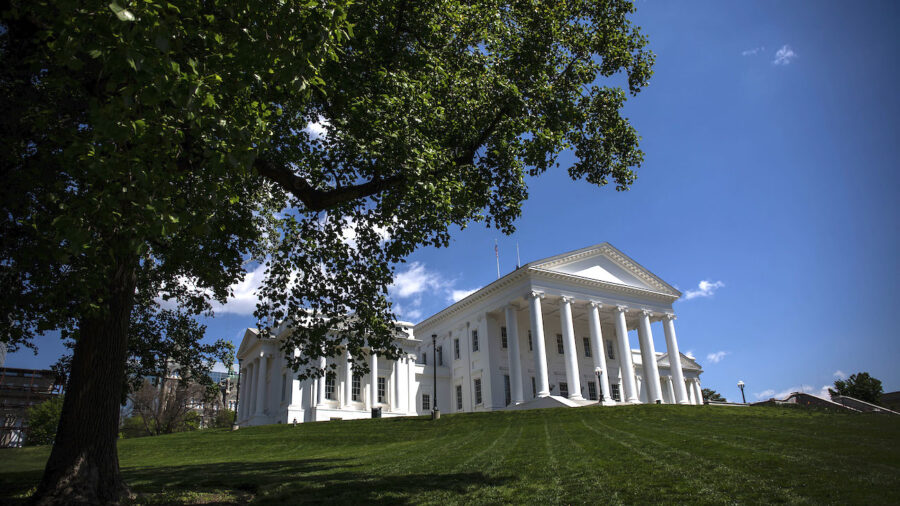The Virginia General Assembly met on April 12 to debate the amendments Gov. Glenn Youngkin made to a group of bills sent to his office in March. While most of the amendments were adopted, a few came under heated debate, highlighting the partisanship preventing the legislative body from finalizing this year’s state budget.
In an April 12 statement, Youngkin said he was humbled to see lawmakers come together on many vital issues.
“However, there is more work to do, and I am shocked by the Virginia Democrats’ decision to put politics before the safety of Virginians, especially our youth, online, at home, and at work,” he said.
Debating Amended Bills
One contested bill is Senate Bill 1515, which protects children from sexual material online. The original bill passed overwhelmingly would require pornographic websites to verify that users are 13 or older and would make the websites liable for damages if a child younger than 13 does access sexually explicit content.
The governor’s amendments would have raised the age verification to block users younger than 18 from accessing explicit material. However, the Democrat-led state Senate voted 22–18 to reject the proposed changes, raising concerns over the amendment’s constitutionality.

Another heavily debated bill was HB 2294, which the governor changed to ensure that intoxicating hemp products are regulated but “non-intoxicating therapeutic products” are available for medical use by Virginians with health conditions such as epilepsy, cancer, and neuropathy.
Republican Del. Terry Kilgore, the original sponsor of the bill, said while the Youngkin amendments don’t make the bill perfect, the Legislature should still pass it to help those with complex medical conditions.
Democrat Del. Dawn Adams, a registered nurse, warned the assembly that how the bill is worded would make it difficult for authorities to enforce the toxicity levels in hemp products.
“This is a very important bill, and this bill is about money at this point. And the bill that we had before this substitution was about public safety,” Adams said. “We are creating a state-sanctioned illicit THC market, doing it this way and not the original Kilgore Bill way.”
The original bill limited the amount of psychoactive THC, which makes the consumer feel “high,” which can be present in medical cannabis products. The governor’s amendment, Adams said, will make it challenging to ensure other intoxicating hemp derivatives are at safe levels.
Del. Candi Mundon King, also a Democrat, criticized the changes and said it would lead to more children and teens getting their hands on hemp products.
“As someone who voted for the underlying bill, these amendments are not just bad politics. It’s bad for people. It’s bad for mothers,” King said.
Republican Del. Margaret Ransone praised the governor for making medical hemp products more readily available to those suffering from severe medical conditions.
“I’m a little confused by the comments that were made that this is about big money, ‘follow the money, follow the money.’ I would ask my colleagues to have a heart,” Ransone said. “I think the governor’s amendments are very appropriate, and I also think that he’s trying to make sure that we are doing what’s right and we’re controlling these markets.”

Besides the debate on the amended bills, Virginia lawmakers have yet to finalize this year’s budget, with Democrats opposing Youngkin’s tax provisions.
Unfinished Business
Youngkin said he is most concerned that this year’s budget has not been adopted and that mental health investments for behavioral health care have not been finalized.
The Virginia Legislature is split along party lines, and each side has its priorities for the budget, with Democrats pushing for the surplus funds to go toward additional funding for public schools and claiming Youngkin’s tax cuts will benefit only the wealthy.
In an interview with WJLA in Washington, Democrat Sen. Scott Surovell said Youngkin “proposed basically to lower the corporate tax rate to below what regular citizens pay.”
Virginians pay about 5.75 percent in taxes, and Youngkin wants to take businesses down to 5 percent, Surovell said.
“Instead of doing that, we’d like to focus on giving our teachers some raises and making some other strategic investments in our budget,” he said.
But Youngkin has said the corporate tax relief would help Virginia be more competitive and attract more businesses.
“The reductions in individual income tax mean 86% of taxpaying Virginians will enjoy the benefits of a lower top tax rate, and an additional 14,000 Virginians will pay no state income taxes. The reduction of tax rates for businesses will result in lower taxes for approximately 475,000 resident small business owners and local businesses across the Commonwealth,” Youngkin said in a January statement.
Virginia operates under a two-year budget cycle, with amendments being offered during the odd years and ideally being finalized by the end of the legislative session in March.
Before the end of the session, the Assembly approved a “skinny,” or stop-gap, budget to put just over $1 billion of the approximately $4.5 billion into the state’s Revenue Stabilization Fund and provide some of those surplus funds to capital projects and the Virginia Retirement System. They also provided $16.8 million toward fixing the $201 million math error by the State Department of Education.
Besides the 78 amended bills, Youngkin signed 738 of the 819 bills into law in late March.
Vetoed Bills
Youngkin only vetoed three bills this year compared to 26 last year.
One of the vetoed bills, SB 1051, would have allowed public utility and broadband service vehicles to be temporarily parked on private property without the owner’s consent.
“This bill violates the fundamental rights of property owners. As a cornerstone of our society, property rights must not be eroded for convenience or expediency,” Youngkin said in a written statement.
Another vetoed bill, HB 1536, would have changed how the state’s human resources agency handles grievance procedures, which Youngkin said would “lead to increased workload and possible delays.”
The third bill Youngkin vetoed was SB 1085, which would have directed state police to convene a work group to examine the issue of vehicle noise in the commonwealth. Youngkin called the legislation “unnecessary.”
Virginia made “a significant bipartisan step by enforcing a primary offense for exhaust systems that are not in good working order last year,” Youngkin said.
The Republican majority in the House sustained all three vetoes, and out of the 819 bills that went to his desk, Youngkin signed 738.


